Table of Contents
“Introducing Electric Van USA: Revolutionize Your Driving Experience. Explore our cutting-edge electric van models designed to elevate your journey while minimizing your carbon footprint. With Electric Van USA, you can enjoy efficient and eco-friendly transportation without compromising on performance. Join the electric movement today for a cleaner, quieter, and smarter way to travel.”
The transportation sector is a major contributor to climate change, accounting for about 24% of global greenhouse gas emissions. Electric vehicles (EVs) are a key part of the solution to sustainable transportation, as they produce zero emissions. EVs also have lower operating costs than traditional gasoline-powered vehicles, which can save businesses and individuals money.
The urgency of transitioning to sustainable transportation is clear: we need to find ways to reduce our reliance on fossil fuels and move towards a cleaner, more sustainable future. EVs are a promising technology that can help us achieve this goal
Features
Zero Emissions: Electric Vehicles (EVs) offer a remarkable advantage by producing zero emissions, contributing significantly to the reduction of air pollution and greenhouse gas emissions. This benefit is pivotal for the environment, as air pollution stands as a key contributor to respiratory and other health issues.
Reduced Operating Costs: The utilization of electricity to power EVs proves to be notably more cost-effective compared to gasoline. Consequently, EVs boast lower operational expenses when contrasted with conventional gasoline-powered automobiles. This translates to substantial savings for both individuals and businesses, stemming from reduced fuel costs.
Noiseless Operation: One of the appealing attributes of EVs lies in their quieter operation in comparison to their gasoline counterparts. This quality renders them an attractive option, particularly for enterprises situated in urban settings. The absence of a combustion engine, which is the primary source of noise in gasoline vehicles, is responsible for the serene operational experience of EVs.
Enhanced Fuel Efficiency: EVs exhibit superior fuel efficiency when measured against traditional gasoline-powered vehicles. This heightened efficiency allows them to cover greater distances on a single charge, making them a practical choice for various transportation needs.
Minimal Moving Components: EVs are engineered with fewer moving parts than conventional gasoline-powered vehicles, consequently resulting in reduced maintenance expenditures. The absence of a complex and costly component like the combustion engine, characteristic of gasoline vehicles, contributes to the lowered maintenance costs associated with EVs.
Electric vans available in the USA:
Ford E-Transit: Representing innovation in the realm of full-size electric vans, the Ford E-Transit excels with its diverse array of configurations, catering to cargo, passengers, and cutaway needs. A single charge empowers it to journey up to 230 miles, demonstrating its commitment to extended mobility.
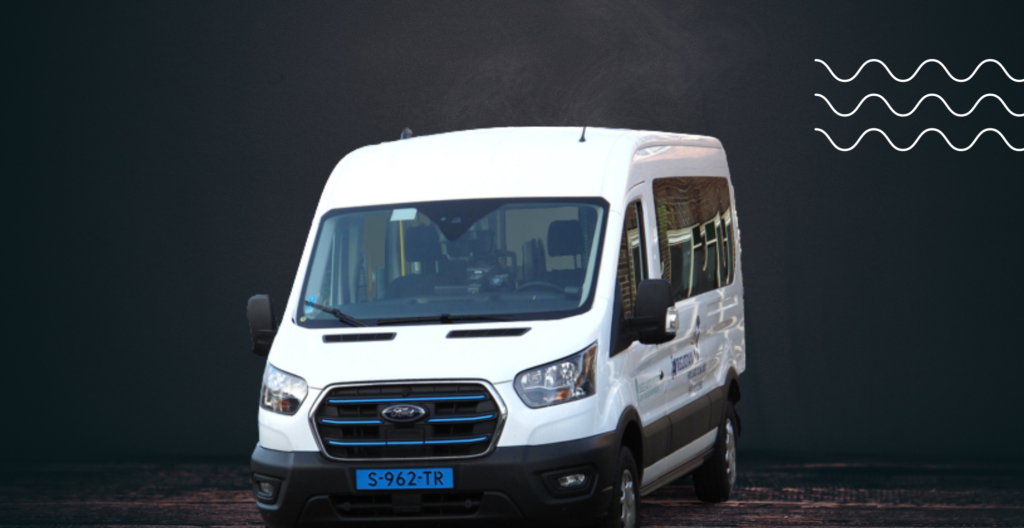
Mercedes-Benz eSprinter: Elegance meets sustainability in the form of the Mercedes-Benz eSprinter, a full-size electric van available in multiple setups – cargo, passenger, and cutaway. With a single charge, it gracefully covers distances of up to 126 miles, making it a stylish yet efficient choice.

Chrysler Pacifica Hybrid: Pioneering the realm of minivans, the Chrysler Pacifica Hybrid shines with its plug-in hybrid powertrain. Seamlessly blending electric and conventional capabilities, it bestows an electric range of up to 33 miles on a solitary charge, setting a new standard for family-friendly efficiency.
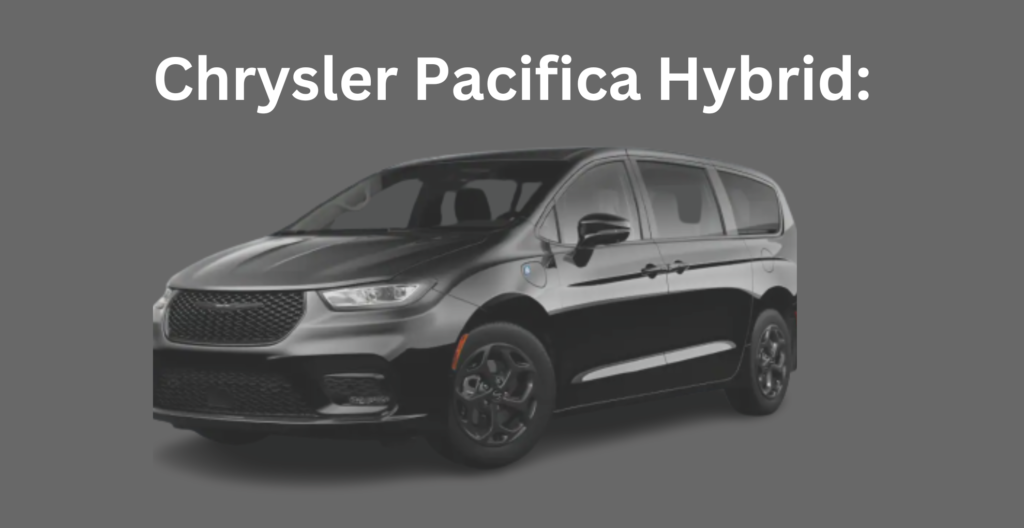
Chevrolet Bolt EUV: A prime example of compact SUV ingenuity, the Chevrolet Bolt EUV stands tall as an all-electric marvel. With an impressive range of up to 247 miles per charge, it embodies the convergence of eco-consciousness and practicality in the world of urban utility.
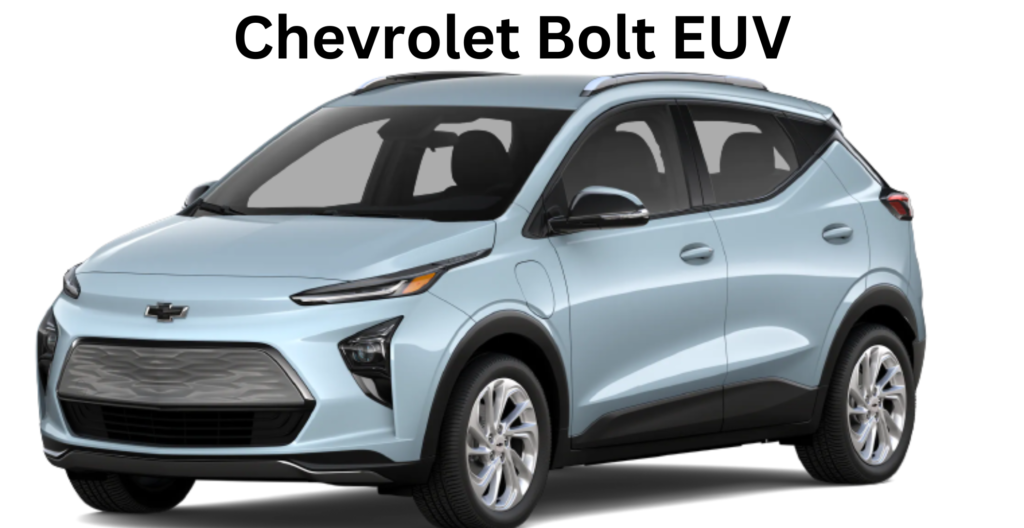
Nissan Leaf: The Nissan Leaf, a compact hatchback with an all-electric heart, emerges as a symbol of efficient urban transportation. Its ability to traverse up to 226 miles on a single charge not only underscores its capability but also redefines the possibilities of emission-free commuting.
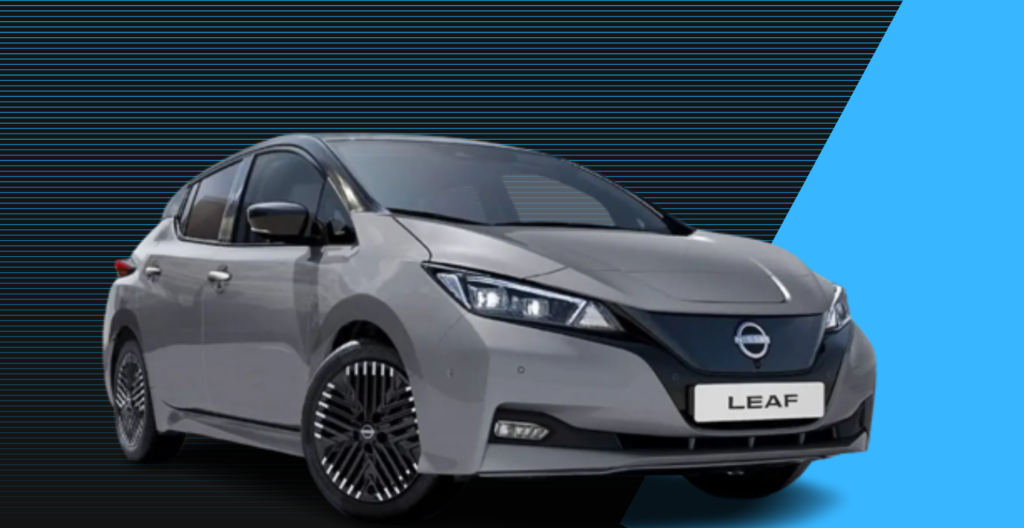
Volkswagen ID.Buzz Cargo: Navigating the landscape of compact electric vans, the Volkswagen ID.Buzz Cargo emerges as a nimble solution tailored for cargo demands. With a commendable range of up to 258 miles on a single charge, it reimagines the notion of urban delivery with sustainability at its core.
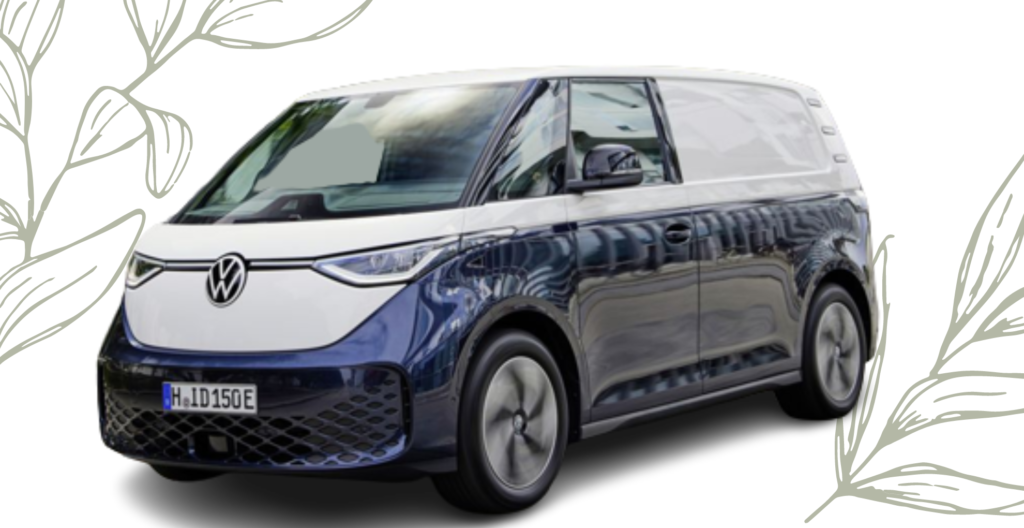
Rivian R1T: Redefining the capabilities of electric pickup trucks, the Rivian R1T takes center stage as a crew cab marvel. Emboldened by an impressive range of up to 314 miles on a solitary charge, it combines rugged utility with electrified prowess, opening new avenues for adventure.
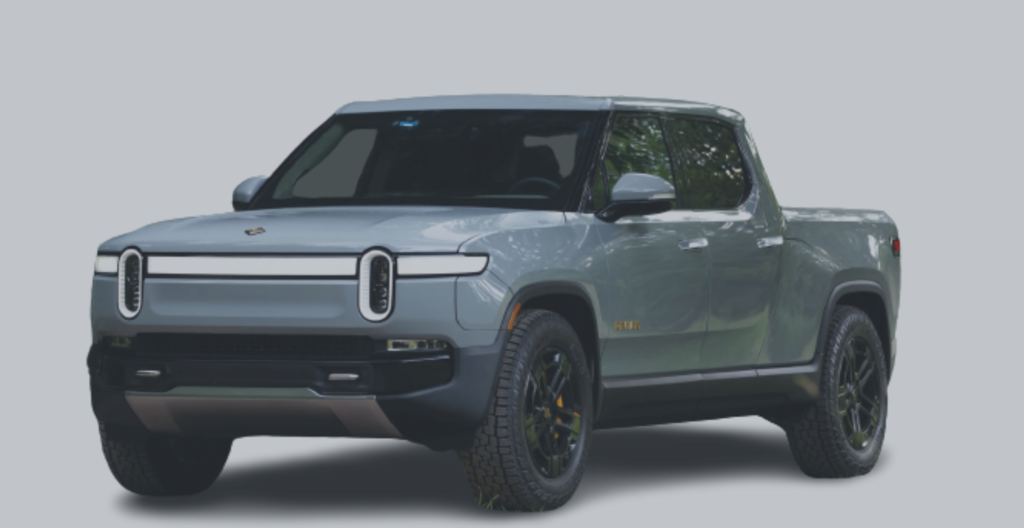
Tesla Cybertruck: The Tesla Cybertruck, an emblem of electric innovation in the pickup truck realm, dares to be different. Offering configurations ranging from single-motor to tri-motor, its range is poised to shatter expectations, although the exact figures remain a tantalizing secret.
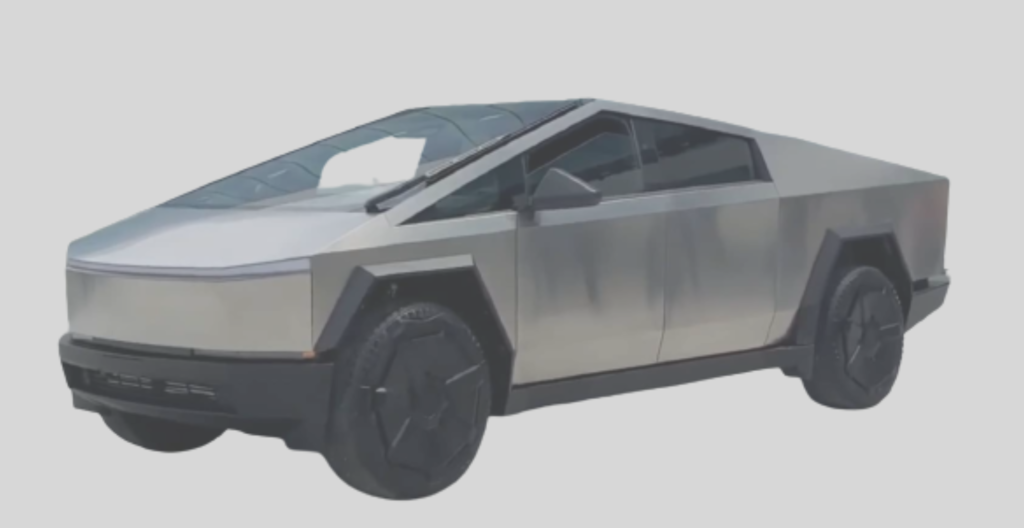
Cons:
- Higher upfront cost: Electric vans typically have higher upfront costs than traditional gasoline-powered vans. This is due to the high cost of the battery pack.
- Range anxiety: Some people may be concerned about the range of electric vans. The range of an electric van can vary depending on the model, the battery size, and the driving conditions.
- Charging time: It can take longer to charge an electric van than it does to refuel a gasoline-powered van. However, the charging time is decreasing as the technology improves.
- Lack of charging infrastructure: There is still a lack of charging infrastructure for electric vehicles, especially in rural areas. This can be a challenge for people who need to travel long distances in their electric van.

